Division Worksheets for Ages 3-4
7 filtered results
-
From - To
Unlock the potential of young minds with our engaging division worksheets designed specifically for ages 3-4. Our carefully crafted activities introduce the concept of division through colorful visuals and simple exercises that cater to early learners. Utilizing playful themes and relatable scenarios, these worksheets foster foundational math skills, enhancing both cognitive development and number sense. Each page is tailored to build confidence and understanding in your child, offering an enjoyable pathway to mastering early division. Make math fun and accessible with our division worksheets, transforming learning into a joyful, interactive experience. Ideal for both home and classroom use.
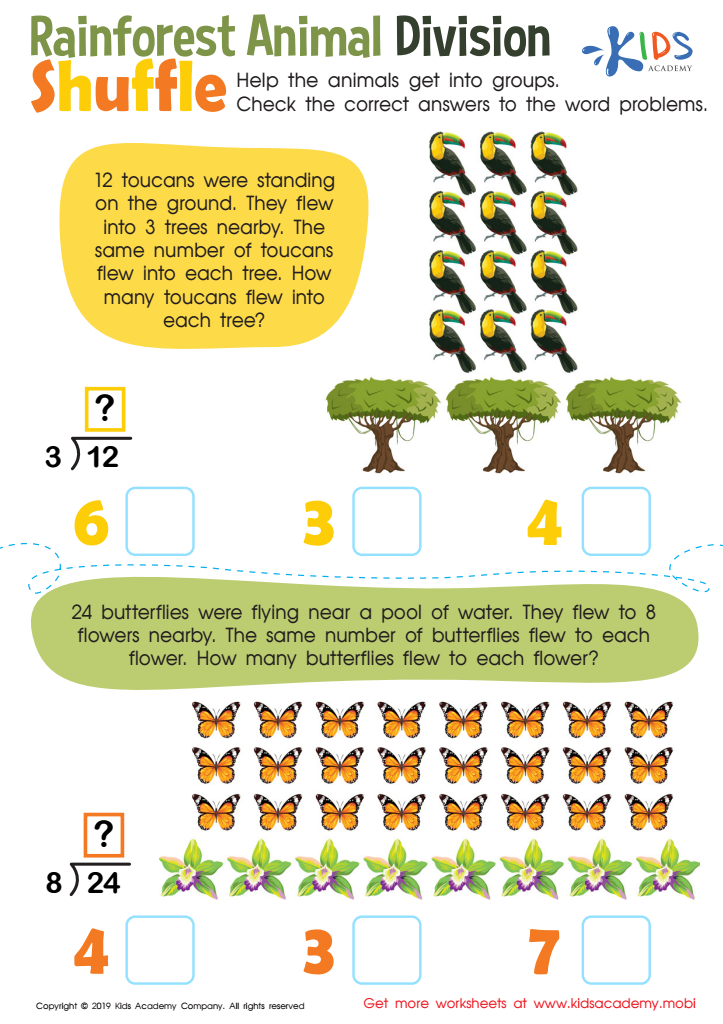

Rainforest Animal Division Worksheet
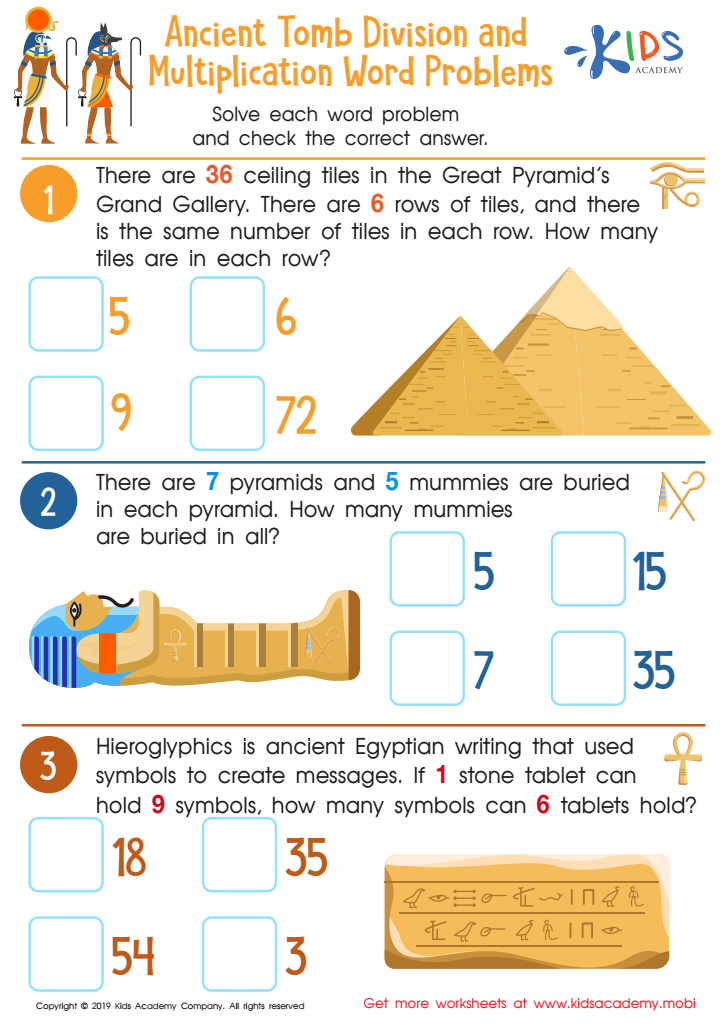

Ancient Tomb Division and Multiplication Word Problems Worksheet
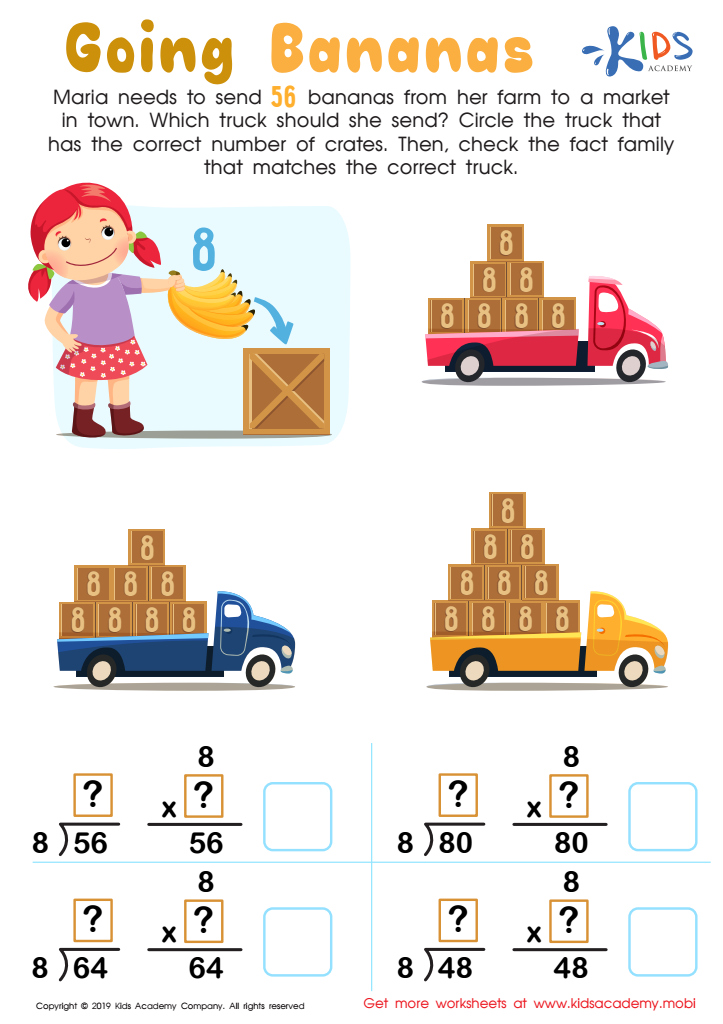

Going Bananas Worksheet


Pollinator Positions Worksheet
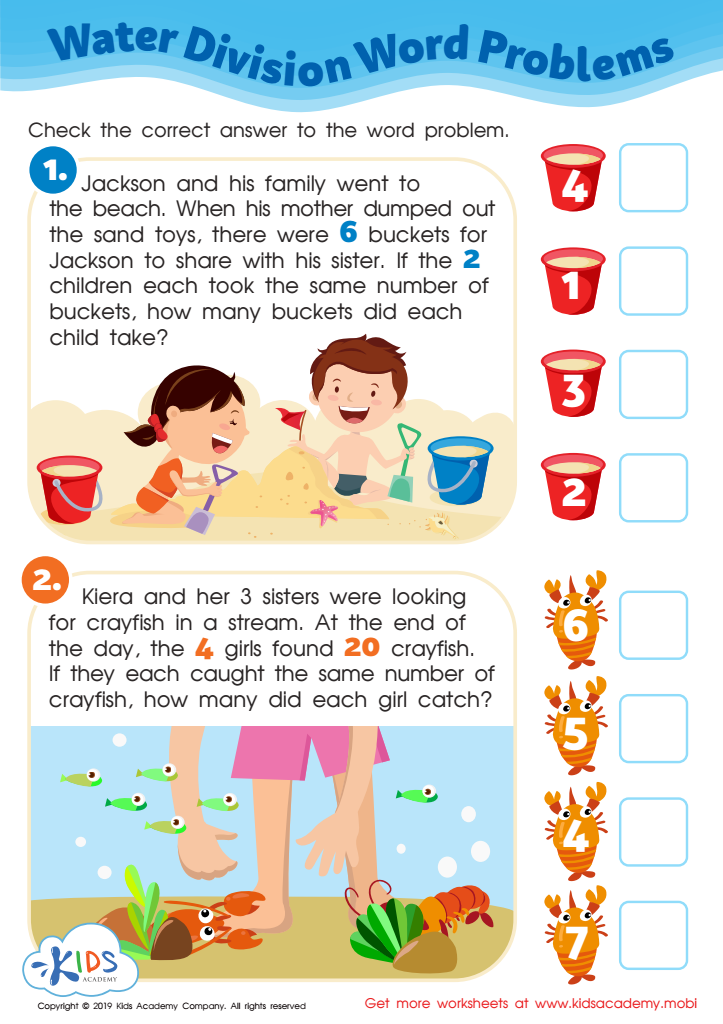

Water Division Word Problems Worksheet
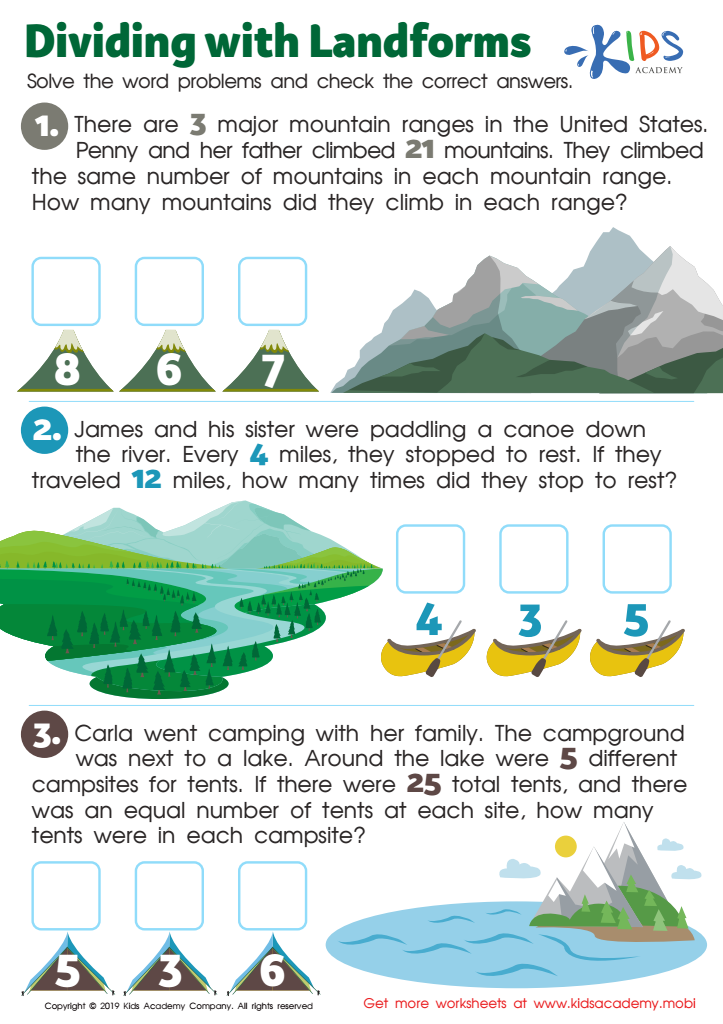

Dividing with Landforms
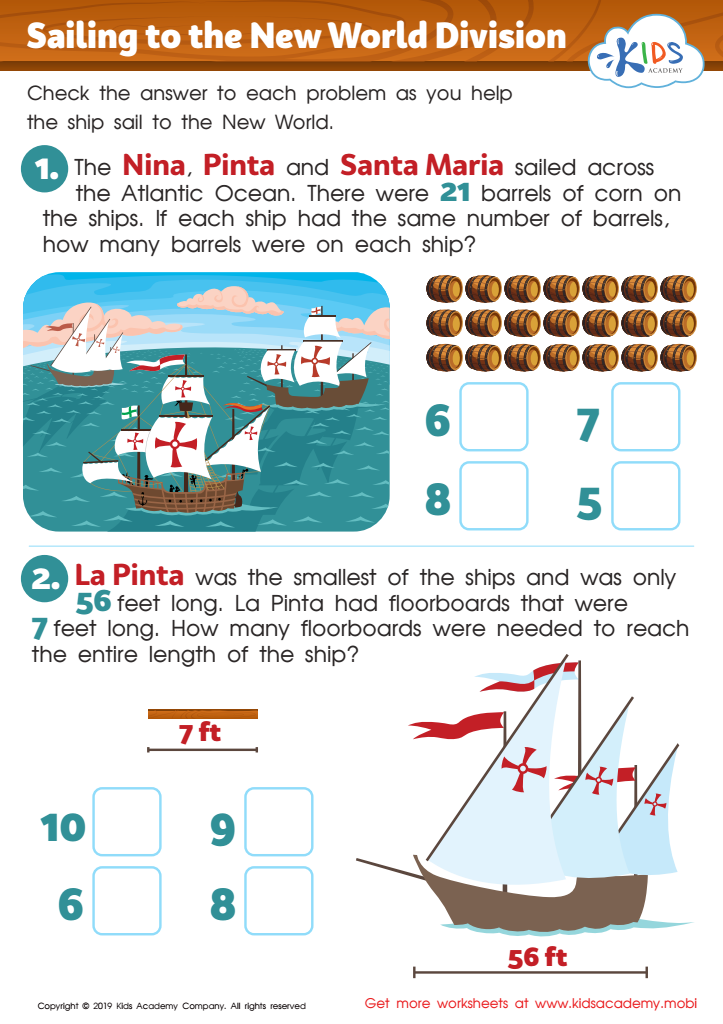

Sailing to the New World Division Worksheet
While formal division may seem advanced for children aged 3-4, early exposure to foundational concepts of division can be hugely beneficial for their cognitive development. At this stage, it's about nurturing an intuitive grasp of problem-solving, fairness, and sharing, all of which are everyday applications of division. Engaging kids in playful and simple activities, like dividing toys, snacks, or shareable items equally among friends, can instill a preliminary understanding of fairness and distribution.
These activities can enhance their counting skills and lay the groundwork for mathematical reasoning that will be essential in later years. Supporting this early curiosity helps children develop problem-solving abilities and logical thinking. They start recognizing patterns subconsciously, which is the cornerstone of comprehending more formal arithmetic concepts as they grow older.
Moreover, nurturing early mathematical skills can boost a child’s confidence in their abilities, and foster a positive attitude toward future learning in mathematics. Cognitive research highlights the importance of early childhood experiences in shaping brain development and foundational knowledge, thus preparing children for more complex subjects in school. By caring about these early practices, parents and teachers are investing in a child’s long-term intellectual growth and fostering a love for learning from a young age.
 Assign to My Students
Assign to My Students
















